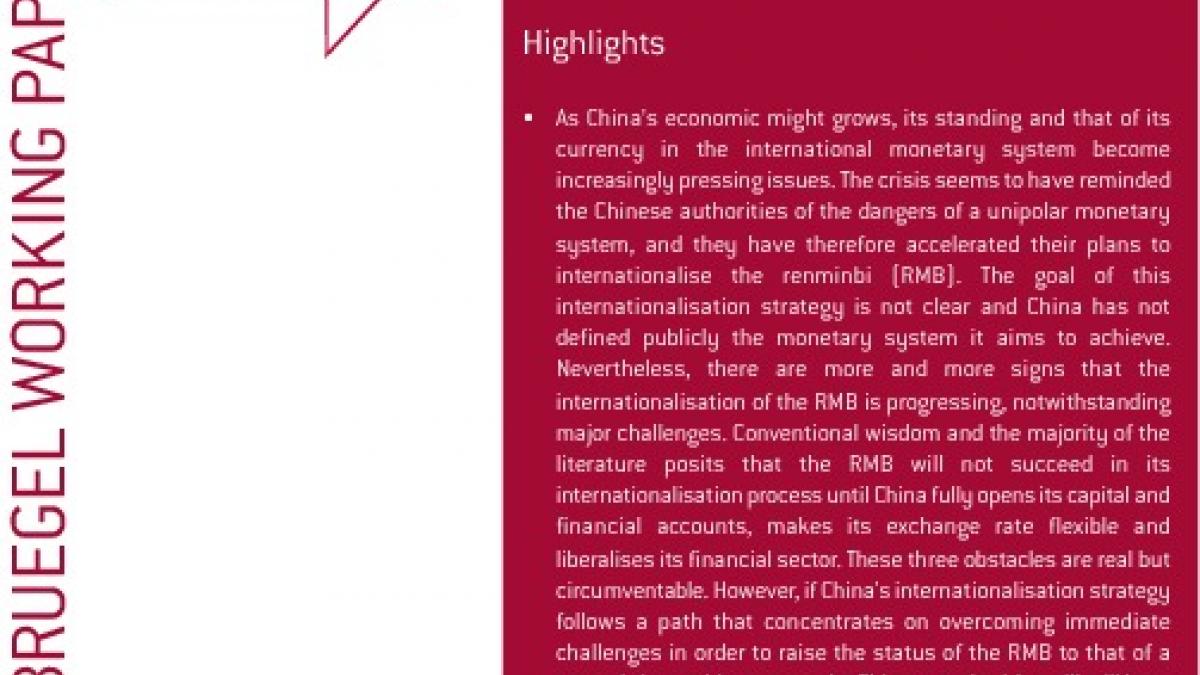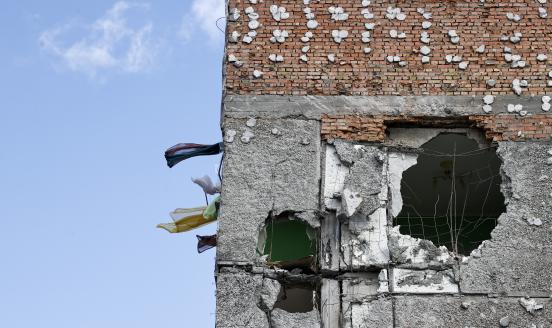The internationalisation path of the renminbi
This paper focuses on the internationalisation sequence of the renminbi, its meaning and its outlook. It is part of a broader work, which concentrate

As China’s economic might grows, its standing and that of its currency in the international monetary system become increasingly pressing issues. The crisis seems to have reminded the Chinese authorities of the dangers of a unipolar monetary system, and they have therefore accelerated their plans to internationalise the renminbi (RMB). The goal of this internationalisation strategy is not clear and China has not defined publicly the monetary system it aims to achieve.
Nevertheless, there are more and more signs that the internationalisation of the RMB is progressing, notwithstanding major challenges. Conventional wisdom and the majority of the literature posits that the RMB will not succeed in its internationalisation process until China fully opens its capital and financial accounts, makes its exchange rate flexible and liberalises its financial sector. These three obstacles are real but circumventable. However, if China's internationalisation strategy follows a path that concentrates on overcoming immediate challenges in order to raise the status of the RMB to that of a second-tier world currency, the Chinese authorities will still have to undertake substantial reforms if they intend to place the RMB on a footing comparable to the dollar or the euro.



